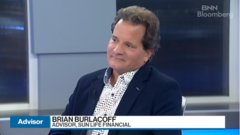Dec 7, 2016
Brian Madden's Top Picks: December 7, 2016
BNN Bloomberg
Brian Madden, senior vice president and portfolio manager at Goodreid Investment Counsel
Focus: Canadian equities and fixed income
_______________________________________________________________
MARKET OUTLOOK
A convincing case can be made that we’re on the cusp of an important regime change post the U.S. elections wherein the baton of policy stimulus is being passed from monetary officials (i.e. the Federal Reserve) to the federal government. This spells the end of nearly eight years of unconventional monetary policy via repeated rounds of quantitative easing and a mildly contractionary fiscal policy environment, with restrained deficit spending under the divided government. With Republicans now firmly in control of the White House, the Senate and the House of Representatives, we feel the odds are very good that the federal government will run a very expansionary fiscal program led by personal and corporate tax cuts, perhaps bolstered by a foreign profits repatriation tax holiday and rounded out by an aggressive infrastructure build campaign. The implications of this are broad and far reaching, and at a high level have prompted us to give fresh thought to positioning in our equity portfolios where we have positioned more pro-cyclically and have reduced exposure to bond proxies, given the prospects for higher interest rates. We also construct high active share portfolios, indicating a high degree of conviction in and reliance upon our individual security selections, in contrast with the current industry movement towards passive investing. As some, but not all of the major macroeconomic risks fade into the background (i.e. Fed moves to normalize interest rates, Brexit, U.S. elections, Italian referendum, etc.), we are seeing and expect to continue seeing lower correlations between individual stocks and major benchmark indices. This renewed differentiation and dispersion in returns favour judicious stock pickers. Our fixed-income portfolios are positioned ideally for this type of environment as well, with an average duration of roughly two years, achieved predominantly via ownership of high-quality corporate bonds, rounded out with some preferred shares, rather than via government bonds.
We see increasing signs that the oil market is returning to equilibrium after a two-year failed experiment in mutually-assured destruction on the part of the OPEC cartel, which was recently reversed with their planned cuts to output scheduled to take effect early next year. Accordingly, we are over-weighted in energy producers in our Canadian portfolios, most of whom stand to also benefit from narrowing price differentials on their oil over the medium term as foreign market access improves post the construction of the two new pipelines the Trudeau government approved last week. We do see some warning signs that the recent and unusual phenomenon of acquisition-driven growth stocks being highly sought after by investors may be waning as the unusually low-growth and low interest rate era may be drawing to a close, concurrent with a step-up in protectionist trade rhetoric and ongoing high foreign exchange volatility. All of these elements may serve to dampen enthusiasm for international mergers and acquisitions. Accordingly, the majority of our portfolios are invested in companies with compelling internal, organic growth opportunities.
One of the principal lingering risks, looking forward to 2017, relates to housing in Canada, where a concerted effort is being made by policymakers to intervene in runaway markets, most notably in Vancouver and Toronto. While prognosticators, much like Chicken Little, have called out that “the sky is falling” for at least the last five years, our view is less alarmist, but is nevertheless pragmatically aware that home prices have outstripped income gains, and affordability is elusive and hinges precariously on continued low rates, policy/regulatory benevolence and the absence of a recession. With two of those three elements changing for the worse, risk/reward in pro-housing trades has become less favourable, and disentangling exactly what is a pro-housing trade, beyond the obvious ones, becomes an important focus area. Beyond our borders, we remain attuned to the global rise of populism/anti-globalization (i.e Brexit, Italian referendum, U.S. elections) and the now somewhat heightened risk of episodic foreign policy flare-ups, given some of the campaign rhetoric we heard throughout the U.S. election campaign. We also acknowledge that despite the Republican sweep of the government, investors may confront bouts of uncertainty around issues like Cabinet nominations, the debt ceiling, and other internally divisive issues within the party.
In summary, we see an economic environment that we expect to transition towards a higher growth rate, with a markedly different composition of sector and style leadership. Somewhat offsetting the benefits of this higher growth rate are likely higher volatility as monetary stimulus wanes and as policy uncertainty increases, but on balance the environment favours a balanced and active approach.
TOP PICKS
ALIMENTATION COUCHE-TARD (ATDb.TO) - Last purchased on November 23, 2016 at $63.75
Alimentation Couche-Tard is the largest convenience store operator in North America. The company has a 20-year+ record of growing earnings and enjoys high and rising profitability as measured by return on shareholder’s equity. Their increasing size and scale is driving procurement advantages relative to rivals, so they can price sharply on fuel to draw traffic. Shoppers are then enticed into attractive, modern and well-merchandised stores to buy chocolate bars, coffee, cigarettes, prepared foods, etc., which carry 34 per cent gross margins versus the five-to-six-per-cent margins on gasoline. Management consists of extremely capable acquirers and integrators of businesses, which is important in this still-fragmented industry where there are more motivated sellers than qualified buyers. The company is in the process of acquiring CST Brands in their largest deal yet for $4.4 billion, which should be about 15 per cent accretive to earnings.
MANULIFE FINANCIAL (MFC.TO) – Last purchased on November 23, 2016 at $23.78
Manulife is Canada’s largest life insurance company. The business is well balanced geographically, with Canada, the U.S. and Asia each contributing to roughly one-third of revenues. The stock yields 3.5 per cent and trades at 1.1x book value, which is discounted both versus other Canadian life insurers and relative to U.S. peers. Manulife offers a 10-per-cent-and-rising return on shareholders’ equity. Life insurer balance sheets are heavily exposed to fixed-income securities via investments in mortgages, bonds and private loans, and thus the company has favourable exposure to a rising interest rate environment which will produce more portfolio income in their general funds.
MAGNA INTERNATIONAL (MG.TO) – Last purchased on November 23, 2016 at $55.65
Magna, Canada’s largest auto parts company, offers exposure to the auto cycle which is still going strong and may extend further from the current run rate of around 18 million cars per year in the U.S. The business is geographically well balanced between North America, Europe and Asia, and Magna is outgrowing the industry in each region as their innovations in “light-weighting” for fuel efficiency, electronic transmissions, and advanced safety/driver assistance breakthroughs have resonated well in the marketplace. A recent change in financial governance is driving higher return of capital to shareholders via buybacks and the shares are inexpensive at 7.5x earnings versus peers at 12x and relative to its own historic average, which is closer to 9.5x.
| DISCLOSURE | PERSONAL | FAMILY | PORTFOLIO/FUND |
|---|---|---|---|
| ATDb | N | N | Y |
| MFC | N | N | Y |
| MG | N | N | Y |
PAST PICKS: OCTOBER 31, 2016
ALIMENTATION COUCHE-TARD (ATDb.TO)
- Then: $67.38
- Now: $61.59
- Return: -8.59%
- TR: -8.46%
PEYTO EXPLORATION (PEY.TO)
- Then: $34.46
- Now: $34.22
- Return: -0.69%
- TR: -0.37%
AGT FOOD AND INGREDIENTS (AGT.TO)
- Then: $38.14
- Now: $34.95
- Return: -8.36%
- TR: -8.36%
TOTAL RETURN AVERAGE: -5.73%
| DISCLOSURE | PERSONAL | FAMILY | PORTFOLIO/FUND |
|---|---|---|---|
| ATDb | N | N | Y |
| PET | N | N | Y |
| AGT | N | N | Y |
FUND PROFILE: GOODREID NORTH AMERICAN BALANCED
PERFORMANCE AS OF SEPTEMBER 30, 2016:
- 1 year: Fund 6.4%, Index* 9.2%
- 3 years: Fund 8.8%, Index* 6.7%
- 5 years: Fund 9.9%, Index* 7.3%
* Index: Globe Canadian Equity balanced peer average
* Reinvested dividends/net of fees
TOP HOLDINGS AND WEIGHTINGS
- Canadian equities: 34%
- U.S. equities: 37%
- Canadian fixed income: 24%
- Cash: 5%
WEBSITE: http://www.goodreid.com
LINKEDIN: https://ca.linkedin.com/in/brianjmadden











